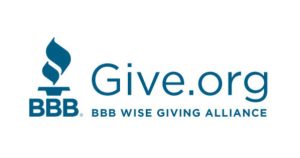Nonprofit service providers in Kansas face a new regulation imposed by the state’s Department of Social and Rehabilitation Services (SRS) that could place strict limitations on the ability to advocate and lobby officials.
According to the SRS, the following wording would be placed in the contract of every service provider working with the department: “No funds allowed under this agreement may be expended by the recipient of the grant to pay, directly or indirectly, any person for influencing or attempting to influence an officer or employee of any agency, a member, or employee of a member of the United States Congress or the Kansas Legislature.”
The National Council of Nonprofits (NCN) in Washington, D.C., is trying to rally support to put a stop to the administrative maneuver. There is no NCN affiliate in Kansas.
“We set everything else aside and set about analyzing the language of this provision,” said Tim Delaney, president and CEO of the NCN. “We recognized that there was a much larger danger not only to nonprofit organizations but also to many others, including media and the community, individuals and even taxpayers,” he said. “This language operates as a gag order preventing any nonprofit that contracts with or receives grants from the state from talking to any local, state or federal agency about anything.”
Delaney said the wording would do away with rights of free assembly and free speech, as well as the right to petition for redress of grievances. The provision was slated to go into effect July 1, after this issue went to press, the start of the state’s fiscal year. Delaney questioned the motivation behind the new provision.
“The department that is introducing this language is trying to explain it away as only trying to limit using money to lobby for more money from the legislature, but that’s not what the language says. If all they want is for grantees and contractors with the state to follow a narrow limitation of a federal law, they can refer to that law. Their effort to insert this language suggests they are trying to do something new.”
Angela De Rocha, director of communications for the SRS, said via an email exchange with The NonProfit Times, that the new provision is included in the Kansas Department of Administration document 146(a), dating from October 2011, which Department of Administration Secretary Dennis Taylor has required all state agencies and bodies to include in their contract language. De Rocha said that providers have signed hundreds of contracts with the new language since this document was issued without demur.
“But beyond the legal requirements, it is just good public policy to prohibit the use of taxpayer dollars to lobby the legislature to spend even more taxpayer dollars. That is an abusive practice that leads to other sorts of inappropriate use of taxpayer funds,” De Rocha added. Amy Hyten, an attorney and the assistant director of the Topeka Independent Living Resource Center, also criticized the provision.
Hyten said that, even though her organization is federally funded and does not receive any money from the state of Kansas, the language is so broad that it could be used to limit the Resource Center’s right to advocate on a statewide level.
Hyten said there is already federal regulation of the use of public funding for lobbying, but it seems as though no one is ever satisfied to stop there.
“The language that I have read in the Kansas contract provision goes well beyond simple limits on lobbying,” Hyten said.
Hyten added that she has been working on alternative wording that can be offered to legislators and regulators that will satisfy them without leaving a blanket ban on advocacy. “This language, ‘directly or indirectly,’ ‘influencing or attempting to influence,’ what’s that supposed to mean?” she said.
Hyten said she is willing, at least for now, to take an attitude that the new provision is the result of overzealousness or clumsy wording and that state officials will be amenable to making changes. The best first approach is to seek a meeting of the minds, she said.
In addition to the provision’s being “un-American” and “harmful,” Delaney saw even more dire consequences. “It’s not just a minor transgression,” he said. “It appears to be a very dangerous trend to try to stop the delivery of basic human services.” NPT











